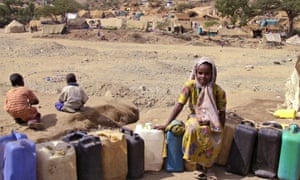Date: Thu, 11 Jun 2015 23:40:39 +0200
As a Ugandan who has been voluntarily taxing myself every month and sending money to support my family back home since I came to the UK over 20 years ago, I was disappointed to read the report that police are examining claims that the “Eritrean embassy in London uses threats and coercion to collect recovery and reconstruction tax that allegedly funds African militants” (Report, 9 June, theguardian.com). The well-documented truth is that, employed or not, all Africans in the diaspora make it a point to send money to their families even before they pay their essential household bills.
According to the African Development Bank: “More than 30 million Africans (about 3% of Africa’s total population) are living outside their home countries. These remittance inflows have more than quadrupled since 1990, reaching $40bn in 2010. This represents about 3% of Africa’s total GDP. Remittances by African migrants provide many benefits to African households and governments. Evidence suggests that, all things considered, poor households receiving remittances tend to have better living conditions than their counterparts without access to this source of income. According to the World Bank, remittances by African migrants could support between 10 and 100 people, by boosting household income and spending on healthcare and education. Thus remittances play an important role in poverty reduction and improving human development.”
Based on this report, the police and other government agencies should seriously consider the wider implication of stopping Eritreans in the UK from sending money to their families.
Sam Akaki
Director, Democratic Institutions for Poverty Reduction in Africa (Dipra)
